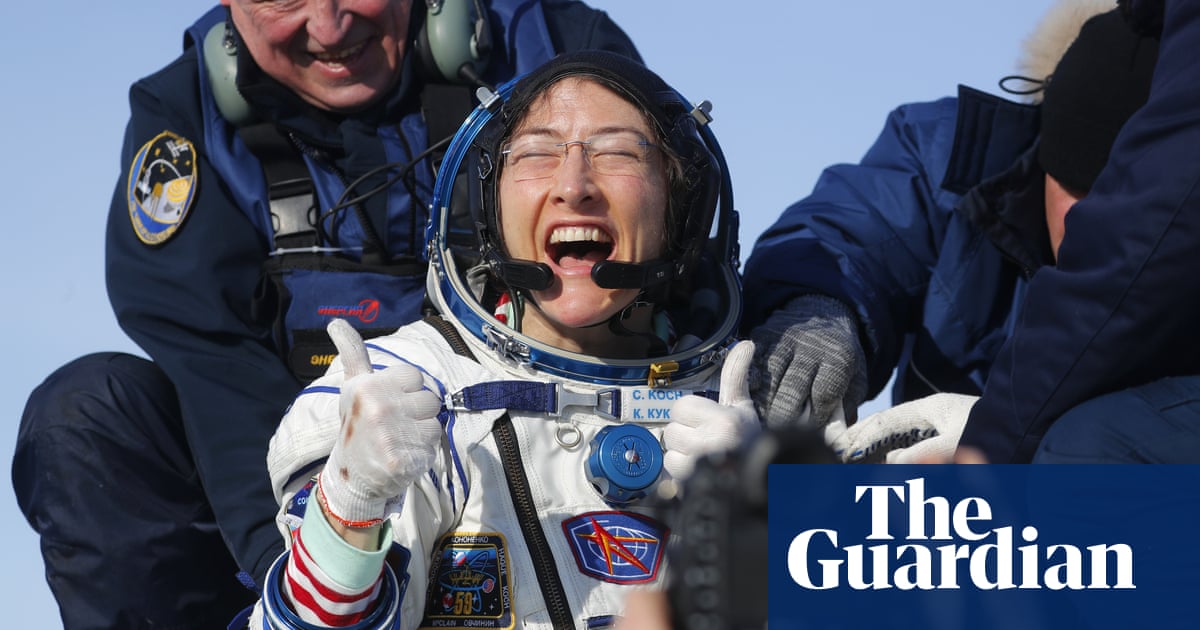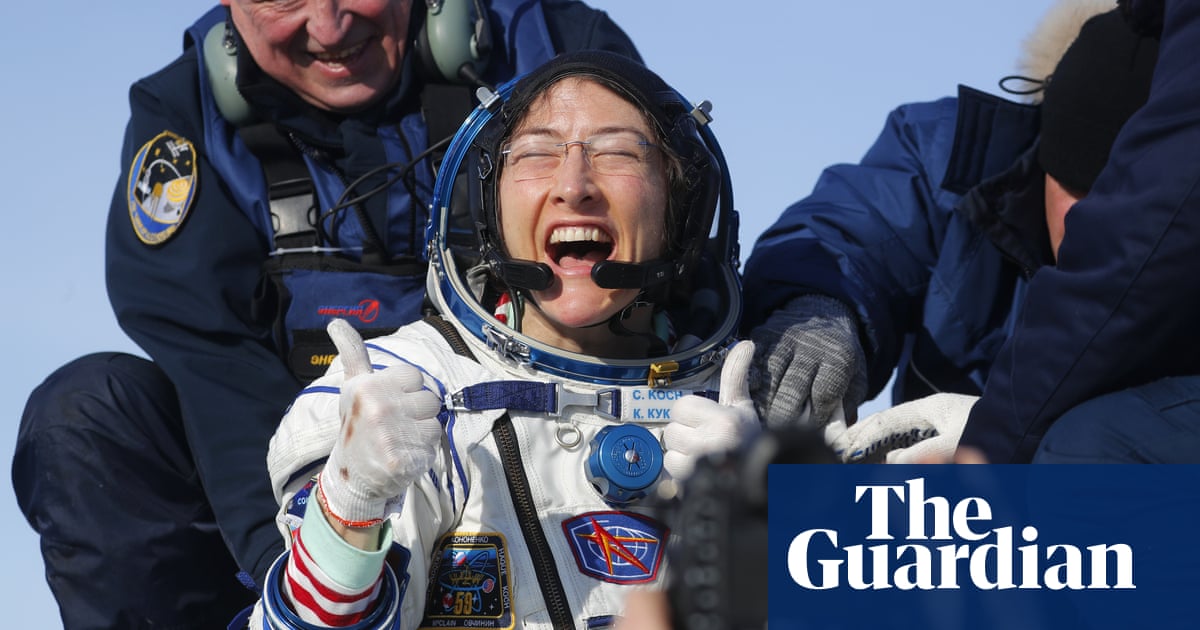Christina Koch returns to Earth after record-breaking space mission
Koch lands in Kazakhstan after 328 days in space, the longest continuous spaceflight by a female astronaut

She would miss the friendship of her crewmates, she said, and of course the spectacular views.
But after 328 days on the International Space Station the longest continuous spaceflight ever undertaken by a female astronaut Christina Koch could not deny last week that she was looking forward to experiencing some very simple pleasures back on Earth, including the feeling of wind on my face.
On Thursday the US astronaut was at last granted that wish, when the Russian Soyuz spacecraft, carrying Koch, Russian cosmonaut Alexander Skvortsov and Italys Luca Parmitano, landed in Kazakhstan, almost a year after Koch last set foot on earth.
Her enormous grin as she was helped from the pod showed just how sweet the central Asian breeze could feel after 11 months in an airtight capsule. I am so overwhelmed and happy right now, the 41-year-old told reporters, shortly after being slid out of the scorched craft and helped to a chair.
Having blasted off on 12 March last year, Kochs stint on the ISS surpassed the previous continuous record for a female astronaut, held by fellow American Peggy Whitson, and brought her within 12 days of the US record set in 2015/16 by the male Nasa astronaut Scott Kelly. (Russian Valeri Polyakov holds the all-time record of 14 months.) Her voyage saw her make 5,248 orbits of the Earth, witnessing 16 sunrises and sunsets every day, and travel 223m km.
In many respects, of course, Kochs gender is the least significant thing about her. An electrical engineer from North Carolina, she is an expert in space science instrument development and in engineering in remote scientific locations including Antarctica and Alaska. Her research during the mission included growing protein crystals for potential use as treatments for Alzheimers and Parkinsons.
But after decades marginalising the women who contributed to its space programmes, Nasa has taken strides to be more inclusive; the 2013 class of which Koch was part had a 50:50 gender split.
Koch has said that both she and fellow astronaut Jessica Meir, with whom she overlapped on the ISS, were conscious of their status as role models to young women in particular. We both drew a lot of inspiration from seeing people who were reflections of ourselves as we were growing up, and developing our dreams to become astronauts, she said in an interview from space last month. Diversity is important and it is something worth fighting for.
It is about more than just optics, however. To date, while more than 560 men have been to space since 1961, while the figure for women is fewer than 70. Nasa plans to return to the moon by 2024, and if it and other space agencies wish to consider more frequent and longer stays outside the Earths atmosphere in future, they will need to know how prolonged space travel affects a diverse range of humans.
Women and men are known to adapt to space differently in some ways, though the reasons are not fully understood, Dr Varsha Jain, a space gynaecologist based at Edinburgh university but currently working with Nasa, told the BBC last year. Women, for instance, are more likely to feel sick when they go into space, men are more likely to get re-entry sickness when they come back to Earth.
Equality will also require resources, however: Kochs stint on the space station also saw her participate, with Meir, in the first all-female spacewalk; that record had been delayed from the previous March, however, when Koch and colleague Anne McClain were due to spacewalk together but the ISS was equipped with only one space suit small enough to fit them.
Though there was much about her stay that was unforgettable, Koch said last week, her spacewalk with Meir was a special moment she would never forget.
We caught each others eye and we knew that we were really honoured with this opportunity to inspire so many, and just hearing our voices talk to Mission Control, knowing two female voices had never been on the loops, solving those problems together outside it was a really special feeling.
